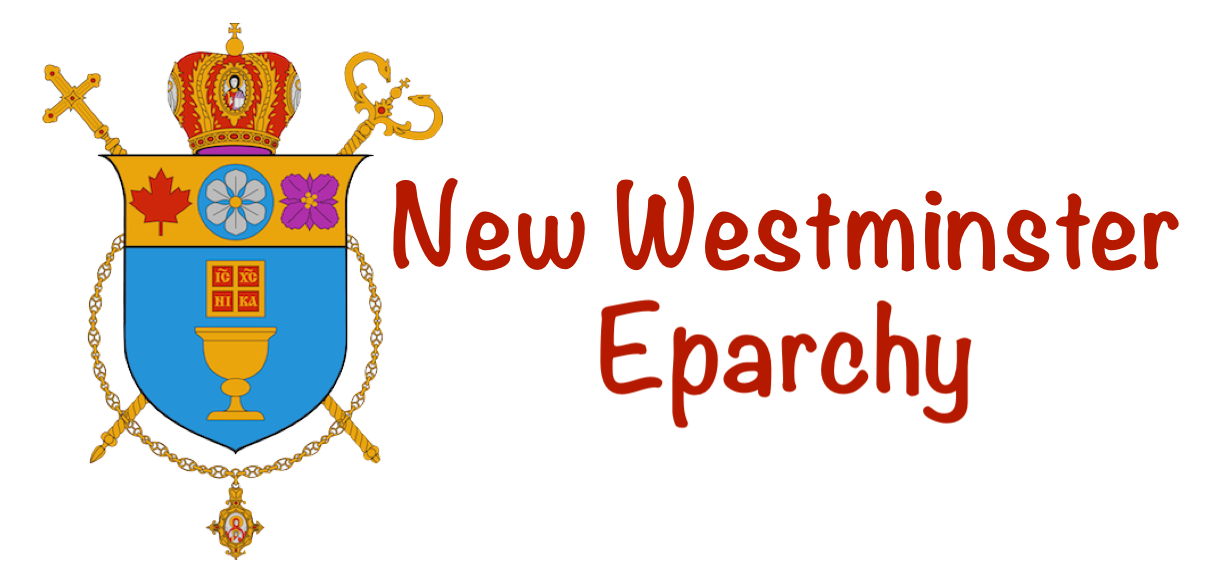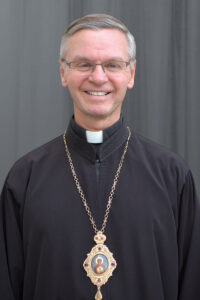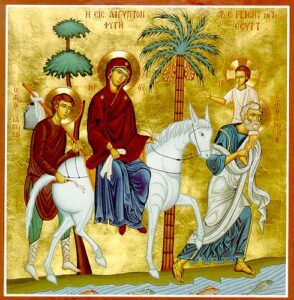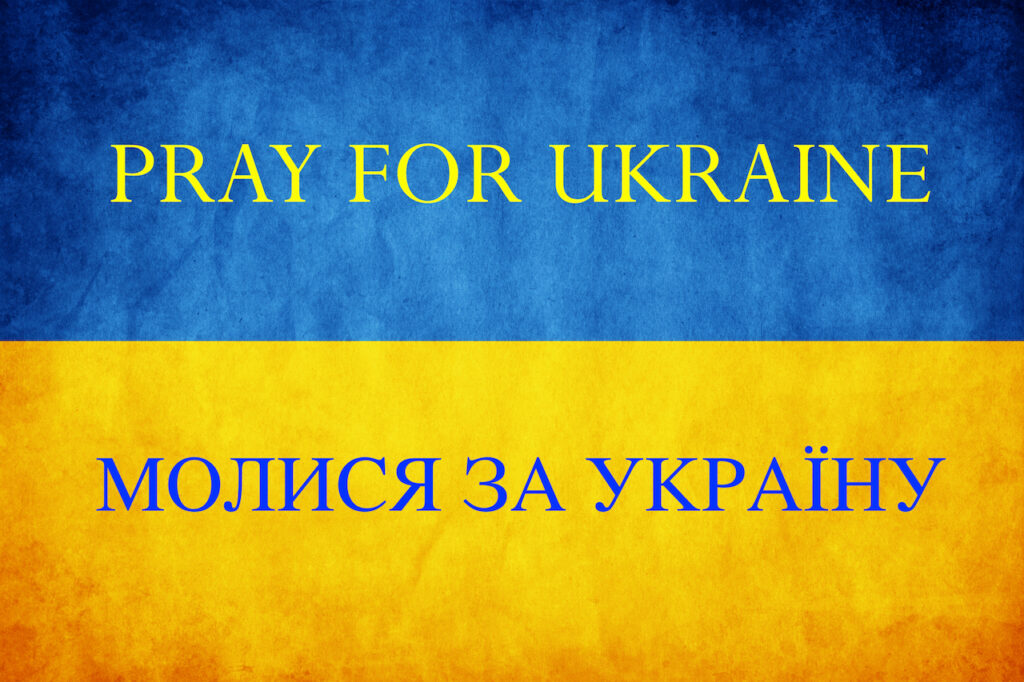The War in Ukraine. Pastoral Letter of the Ukrainian Catholic Church in Canada
The War in Ukraine: A Call to Prayer, Fasting, and Action
Пастирський лист до духовенства, монашества і вірних Української Католицької Церкви у Канаді і до всіх людей доброї волі. Війна в Україні: Заклик до молитви, посту і дійDear Faithful,
The war in Ukraine rages on with no end in site, claiming the lives of thousands of innocent children, men and women, with millions more on the move as refuges in search of safety, food, shelter, clothing and medicine, in addition to the destruction of countless homes, schools, hospitals and business. As winter approaches, hundreds of thousands of people will have no heat in their homes, with energy being used as a weapon of punishment.
Ukraine and its people are in crisis. Like the Holodomor-Genocide or Ukrainian Famine of 1932-1933, which claimed the lives of millions of people in Ukraine when the Soviet Union deliberately and methodically starved as many as one-quarter of the Ukrainian population, today’s war in Ukraine by foreign aggressors has as its intent to erase the identity and history of the Ukrainian people – a genocide in the making.
In light of the recent intensified attacks, let us renew our attention to the plight of the people of Ukraine in an effort to continue to “Stand with Ukraine.”
In particular, let us renew our efforts to pray, fast, and act.
Prayer
Prayer is the privilege and duty of every person where we worship and praise the Lord God and bring forth our immediate needs and concerns.
We, the Ukrainian Catholic Bishops in Canada, invite you to renew your efforts to pray daily for peace in Ukraine.
Let us pray for those who endure the war, who defend their country and nationhood, who live in fear, and who have been forced to flee their homes.
Let us pray for those who have died as a result of the war, and for those who have died today and who will die tomorrow.
Let us pray:
O Lord Jesus Christ, our God, we entreat You to hear the earnest prayer of Your beloved Church of Kyivan Rus’ for her afflicted children abiding in the land of Ukraine. Deliver Your vulnerable people from unjust aggressors, foreign invasion and the terror of war. O kind-hearted Lord, as You are our peace, soften the hearts of the unmerciful and convert those who promote hostilities toward reconciliation, so that your beloved children of the land of Ukraine, may abide in that tranquility, justice and freedom which reflects your Kingdom, where You reign with Your eternal Father, and Your most holy, good and life-giving Spirit, now, and forever and ever. Amen.
Fasting
The age-old practice of fasting is a means to spiritual growth and purity of heart.
Through fasting we recall the failure of Adam and Eve to fast from the forbidden fruit thereby leading to their expulsion from the Garden of Eden. Through fasting, we resolve to renew our lives according to God’s ways and laws.
We, the Ukrainian Catholic Bishops in Canada, invite you to fast for the people of Ukraine and for peace in their country. Like the Holodomor Ukrainian Famine in 1932-1933, many people in Ukraine today have no food. In solidarity with them, let us fast.
In particular, we invite you to a three-day fast starting on Thursday, November 24, concluding on Saturday, November 26, when we commemorate the Holodomor annually throughout Canada.
Fast as best as you can. For some, that will mean only bread and water, for some no sweets, for others only one meal each day. However you choose to fast, unite your thoughts and prayers before the Lord for peace for the people of Ukraine.
Action
Almsgiving is a charitable way of expressing gratitude to God for the bounty of God’s blessings in our daily lives.
Almsgiving is also a way to identify with the needs of others and respond in some meaningful way.
We, the Ukrainian Catholic Bishops in Canada, acknowledge and thank you for your unprecedented generosity in providing humanitarian aid to the people of Ukraine. May God bless your kindness and generosity!
Yet, today, as winter approaches, the people of Ukraine need your support evermore.
We invite you to consider a further humanitarian aid donation so that the people of Ukraine may have the basic necessities in life that each of us enjoys – food, shelter, clothing, and medicine, as well as heat, for their homes this winter.
Kindly donate through your local parish, Catholic Near East Welfare Association – Canada (CNEWA), Development and Peace – Caritas Canada, Aid to the Church in Need – Canada, Canadian Jesuit International, or the Ukrainian Canadian Congress.
Conclusion
The purpose of this pastoral letter has been to raise our awareness of the ongoing war in Ukraine and to invite you to prayer, fasting, and action towards our brothers and sisters who are in desperate need of your support.
These are not easy times. The entire world is ill at ease.
Yet, together we can make a difference in the millions of lives of the children, men and women who are counting on you.
May God bless you and your family with health, peace, love and joy.
Sincerely in Christ,
+ Lawrence Huculak, OSBM, Metropolitan Archbishop of Winnipeg; Apostolic Administrator of Saskatoon
+ David Motiuk, Eparchial Bishop of Edmonton; Apostolic Administrator of New Westminster
+ Bryan Bayda, CSsR, Eparchial Bishop of Toronto
Дорогі вірні,
Війна в Україні шаленіє без видимих ознак завершення, забираючи життя тисяч невинних дітей, чоловіків і жінок і змушуючи мільйони українців залишати домівки у пошуках безпеки, їжі, прихистку, одягу, медикаментів через втрату зруйнованого житла, шкіл, лікарень і підприємств. З наближенням зими сотні тисяч людей також будуть позбавлені опалення у своїх помешканнях, оскільки енергоносії сьогодні перетворюються на засоби тиску і покарання.
Україна і її народ – у кризі. Схоже до того, як у свій час Геноцид-Голодомор 1932-33 років, який позбавив життя мільйонів людей в Україні, коли Радянська влада свідомо і методично заморила голодом чверть українського населення, сучасна війна в Україні, спричинена зовнішнім агресором, має на меті стерти ідентичність і саму історію українського народу, стаючи таким чином новим “геноцидом в дії”.
У світлі нещодавніх ще інтенсивніших ворожих нападів, давайте разом заново привернемо увагу до важкої ситуації в Україні, намагаючись продовжувати “стояти з Україною.”
Зокрема, давайте заново докладемо зусиль до молитви, посту і активних дій.
Молитва
Молитва є водночас привілегією і обов’язком кожної особи, яка через прославу Господа Бога доносить до Нього наші безпосередні потреби і занепокоєння.
Ми, Українські католицькі єпископи Канади, закликаємо вас відновити старання стосовно щоденної молитви за мир в Україні.
Давайте молитися за тих хто потерпає від війни, хто захищає свою країну, хто живе в страху і тих, хто був змушений залишити свої домівки.
Давайте молитися за тих, хто загинув через цю війну, тих, хто загинув сьогодні і тих, хто загине завтра.
Помолімось:
Господи Ісусе Христе, Боже наш, благаємо Тебе вислухати щиру молитву Твоєї улюбленої Церкви Київської Русі за її засмучених дітей, які потерпають в Україні. Звільни Твій наражений на небезпеку народ від несправедливого агресора, нападу чужинців і терору війни. Добросердний Господи, джерело нашого миру, умиротвори серця немилосердних і наверни тих, хто пропагує ворожнечу до примирення, щоб Твої улюблені діти української землі могли проживати у такому спокої, справедливості і свободі, які завжди панують у Твоєму Царстві, де Ти царюєш зі своїм споконвічним Отцем і Твоїм благим і животворящим Духом нині, повсякчас і на віки віків. Амінь.
Піст
Споконвічна традиція посту є потужним засобом духовного росту і очищення серця.
Через піст ми пригадуємо невдачу Адама і Єви стриматися від забороненого плоду, що призвело до їхнього вигнання з Едемського саду. Через піст ми постановляємо відновити свої життя згідно Божих доріг і законів.
Ми, українські католицькі єпископи Канади, запрошуємо вас постити за український люд і за мир у їхній країні. Як у часи Голодомору 1932-1933 років, багатьом людям в Україні сьогодні бракує їжі. Тож давайте постити у солідарності з ними.
Зокрема, запрошуємо вас до трьох-денного посту від четверга, 24 листопада до суботи, 26 листопада, в часі коли ми у Канаді щороку відзначаємо пам’ять Голодомору.
Постіть так, як ви найкраще можете. Для декого, це може бути лише хліб і вода, інші – можуть відмовитися від солодощів, у той час коли хтось може обмежити споживання їжі до одного разу на день. Як би ви не вирішили постити, нехай ваші думки і молитви перед Господом будуть за мир для українського народу.
Активні дії
Милостиня – є практичним харитативним способом виявляння вдячності Богові за обильні Божі дари в нашому щоденному житті.
Милостиня – це також можливість ідентифікувати себе з потребами інших і здатність реагувати на ці потреби у конкретний осмислений спосіб.
Ми, українські католицькі єпископи Канади, цінуємо і висловлюємо вам вдячність за вашу безпрецидентну щедрість у наданні гуманітарної допомоги людям з України! Нехай Господь благословить вашу доброту і щедрість!
Однак сьогодні, в часі наближення зими, український народ потребує вашої підтримки ще більше.
Ми запрошуємо вас розглянути можливість подальшої гуманітарної допомоги, яку буде потрібно спрямувати на забезпечення базових життєвих потреб людей в Україні, всього того, чим кожен з нас втішається тут у Канаді – їжа, дах над головою, одяг, медикаменти як і тепло у їх помешканнях цієї зими.
Ласкаво просимо надсилати пожертви через ваші місцеві парафії до Catholic Near East Welfare Association – Canada (CNEWA), Development and Peace – Caritas Canada, Aid to the Church in Need – Canada, Canadian Jesuit International, або Ukrainian Canadian Congress.
Підсумки
Метою цього Пастирського листа було підвищити наше загальне усвідомлення того, що війна в Україні триває і запросити вас до молитви, посту і активних дій спрямованих на допомогу нашим братам і сестрам, які надзвичайно потребують вашої підтримки.
Ми живемо у нелегкі часи. Весь світ є хворим.
Однак разом ми можемо зробити суттєвий внесок у життя мільйонів дітей, чоловіків і жінок, які розраховують на нас.
Нехай Господь благословить вас і ваші сім’ї здоров’ям, миром, любов’ю і радістю.
Щиро у Христі,
+ Лаврентій Гуцуляк, ЧСВВ, Митрополит і Архиєпископ Вінніпегу, Апостольський Адміністратор Саскатуну
+ Давид Мотюк, Єпископ Єдмонтону, Апостольський Адміністратор Нью Вестмінстеру
+ Браян Байда, ЧНІ, Єпископ Торонто






Recent Comments